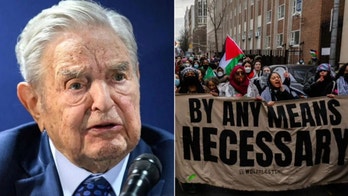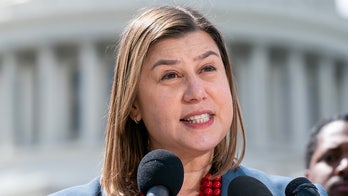Senate Majority Leader Harry Reid said Wednesday that he still wants to work with Republicans to craft a "bipartisan" health care reform package, despite a prior warning to the top Democratic negotiator that he should stop chasing GOP votes on the bill.
The Nevada Democrat released a written statement affirming his interest in reaching across the aisle after meeting with four key Republican senators on health care reform.
"Democrats have said from the beginning of this Congress and throughout this debate that with the health of our economy and our citizens at stake, our strong preference is to pass a bipartisan bill that lowers crushing health care costs for the middle class," Reid said. "I appreciate some of our Republican colleagues' demonstrated commitment to that goal, and I look forward to more Republicans joining us at the negotiating table."
The statement would reflect a change in tone from Reid's apparent behind-the-scenes approach.
A source told FOX News on Tuesday that Reid warned Senate Finance Committee Chairman Max Baucus, D-Mont., in a leadership meeting to ease up on the quest for a bipartisan health care package.
According to Roll Call, Reid was concerned that Baucus would pursue a tax on health care benefits and drop a strong government option from the package for the sake of winning GOP support. Reid was concerned Baucus would lose far more Democrats in the process, imperiling the bill, the newspaper said.
But Republicans still in the loop on health care were challenging Reid and saying that a bipartisan package is the only way to go.
Sen. Charles Grassley, R-Iowa, told FOX News ahead of Wednesday's meeting that he planned to ask Reid about that comment.
"We're still at the table. I think a bipartisan solution is the only solution," he said.
Sen. Olympia Snowe, R-Maine, who also sits on the finance panel and who has been at the center of health care negotiations, said she too wanted to ask Reid about his comment.
Reid also met with Sen. Orrin Hatch, R-Utah, and Sen. Mike Enzi, R-Wyo.
Those four Republicans make up a core group of negotiators who have been working around the clock with Baucus and his staff, along with a handful of committee Democrats.
Baucus' bill does not currently include a public option, but Snowe said she is working with Sen. John Kerry, D-Mass., on a "fallback" public option -- a government-run plan that would kick in should reforms not be robust enough to achieve universal health care that is affordable for everyone.
Reid also told Baucus, according to the source, that in the quest to find a way to pay for health care reform, he should shelve the vastly unpopular tax on health care benefits provided by employers.
Snowe said she expects it to be removed from the bill eventually but that she, along with committee member, Sen. Kent Conrad, D-N.D., want the tax to stay on the table until alternatives can be found to replace it.
It is estimated that the tax would bring in $340 billion in revenue, according to Conrad. But alternatives to the tax on health care benefits are not necessarily popular either.
Conrad said a cap on the deductibility of charitable giving for high wage earners is being considered. In addition, a 2 percent tax for people making more than $250,000 a year is also on the table.
Another sticky issue for the committee is deadlines.
Reid has expressed impatience to colleagues, as he and President Obama have said they want a bill by September. Two senior White House sources told FOX News that Baucus has been given a fixed amount of time to lead before Reid takes over.
The crunched timeline isn't sitting well with some lawmakers.
"There's plenty of time to do this bill. We've got all kinds of time. The important thing is to get it right, not to get stuck on some specific day or some specific time," Conrad said.
Baucus has told colleagues he would like to have his full committee consider a bill as early as Tuesday, but at this point, nothing is in stone.
Grassley said he is concerned about the timeline, because he and three of his fellow Republicans on the committee are also on the Judiciary Committee, which will be considering the nomination of Sonia Sotomayor to the Supreme Court. GOP leader Mitch McConnell, R-Ky., told reporters he expects his Republicans to be at the Sotomayor hearings.
One other problem weighing on the Finance Committee, said Snowe, is that the nonpartisan Congressional Budget Office, which provides estimated costs of legislation, is getting bogged down with a massive workload. Snowe suggested that Reid and House Speaker Nancy Pelosi, D-Calif., should step in and ease that workload, as they have oversight of CBO.
Meanwhile, difficulty on the Senate side may not prevent House lawmakers from forging ahead on a health care plan.
House Ways and Means Committee Chairman Charlie Rangel, D-N.Y., one of three House committee chairmen leading reform efforts, appeared unfazed by the Senate drama.
"The House should not ignore the Senate, but not concentrate on what the Senate may or may not do," Rangel said. "I don't have time to really think about the complexities of the Senate."
Rangel said his foremost goal was to move a plan through the House. The tentative schedule is for Rangel's committee, and two other committees, to draft bills next week.
Click here for more coverage on health care reform.
FOX News' Chad Pergram contributed to this report.




